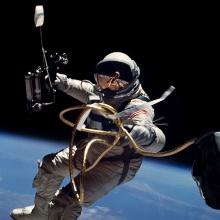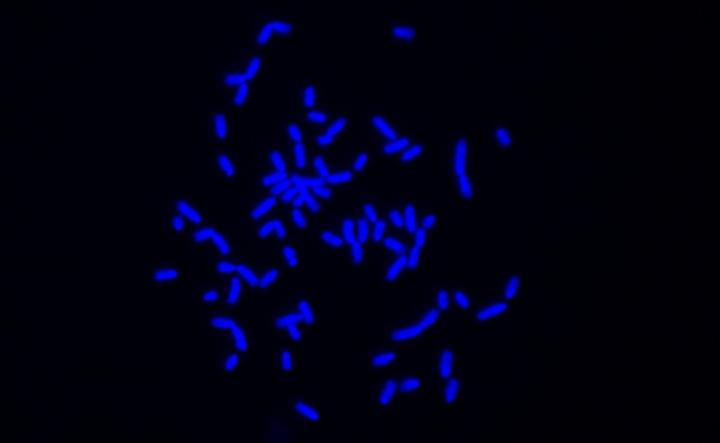Experts believe that stress plays a major role in the development of tumors. One occupational group, for example, that experiences extreme stress over a short period of time is astronauts. Dr. Philipp Rathert from the University of Stuttgart and Prof. Stephan Beck from University College London, along with company partners Active Motif and Microsynth, plan to use epigenetic changes in the genetic material to investigate how the immune system adapts to prolonged orbital space flights and then apply the findings to cancer research.
A prolonged space mission might sound fascinating, but it is extremely hard work: astronauts must work with loads weighing several hundred kilos and are acutely and chronically exposed to high levels of radiation, as well as the physiological effects of weightlessness and enormous psychological stress. All these factors lead to extreme stress, which is known to weaken the immune system. "We know from studies carried out following completed space missions that an astronaut's immune response changes under the extreme conditions of prolonged orbital space flight, because certain types of immune cell decrease, while others increase. For example, this can lead to 'dormant' herpes or Epstein-Barr viruses becoming active, resulting in the increased shedding of large amounts of active viruses and thus causing skin inflammation," explains the project's coordinator, Dr. Philipp Rathert from the Institute of Biochemistry and Technical Biochemistry (IBTB) at the University of Stuttgart. "Our hypothesis puts forward that conclusions can be drawn from the stress-induced dysregulation of the human immune system in space, which can then be applied to stress-induced changes in immune cells in malignant diseases. Knowledge gained in this area could aid the development of alternative cancer therapies, for example."
To investigate these relationships, the partners involved in the "Space-ChIP" project rely on epigenetics, a field of biology that deals with changes in gene function that are not based on changes in the DNA sequence but are nevertheless passed on to daughter cells. Epigenetic changes play a fundamental role in biological and pathological processes by interpreting environmental signals and regulating gene expression (the expression of genetic information). These dynamic expression patterns, from initiation to triggering of the immune response, are due to different chromatin states, for example, on regulatory gene sequences.
"We plan to identify genome-wide changes in epigenetic modifications acquired during prolonged orbital space flights," explains Philipp Rathert. For this purpose, the blood test results from astronauts will be compared with those of control subjects on Earth and the results will then be compared with extensive databases on cancer patients. "In this way, we hope to explain what role stress actually plays in the development and progression of cancer."
Test persons wanted
The researchers are now looking for test subjects for the control group, who are willing have three (small) blood samples taken at six-month intervals. These can be performed at the University of Stuttgart or by your doctor. Please send inquiries to Dr. Philipp Rathert.
About the project:
The Space-ChIP project (Epigenetic adaptation of the immune system to prolonged orbital space flights) began on January 1, 2022 and is being funded by the German Aerospace Center (DLR) with a total of just under EUR 200,000. The project will run for up to four years. Further information about the project
Expert Contact:
Dr. Philipp Rathert, University of Stuttgart, Institute of Biochemistry and Technical Biochemistry (IBTB), Department of Biochemistry, Phone +49 711 685 64388 , E-Mail
Are you looking for expert contacts in a specific field? The Expert Service at the University of Stuttgart helps you find scientists who can support you in your research:



